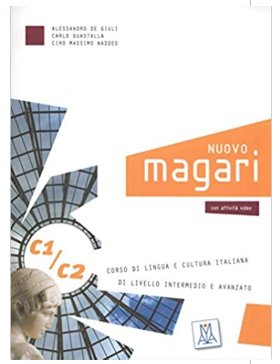A-level Course Outline
Why choose the Edexcel Advanced GCE in Italian?

- The new Edexcel A-level in Italian has been developed to inspire all students who have an appreciation of the language, literature, film and culture of the Italian-speaking world.
- This qualification offers a suitable progression route to further study at university level. The qualification may also add to an individual's employability profile, particularly for UK organisations trading overseas as well as with international companies based in the UK and globally.
Inspiring and engaging themes
- Familiar and popular themes as well as some new content will provide clear links to some of the most fundamental and interesting aspects of the culture of the target language country and communities.
Rewards creativity
- The assessments place an emphasis on spontaneity and grammar, as well as providing plenty of opportunities for students to apply their knowledge independently and creatively.
- Clear mark schemes encourage students to develop ideas and use language to persuade and analyse and give critical responses in their writing and speaking.
Clear and coherent structure
- Four engaging themes - I cambiamenti della società italiana; La cultura politica ed artistica nei Paesi di lingua italiana; L'Italia:una società in evoluzione; Dal Fascismo ai giorni nostri.
- The four themes are studied alongside two works (either two literary texts or one literary text and one film) assessed through two externally-examined papers (Paper 1 and 2) and one teacher-examiner conducted speaking assessment (Paper 3).
Prescribed literary texts and films
Literary Texts
- Il giorno della civetta, Leonardo Sciascia, 1961 (novel)
- Io non ho paura, Niccolò Ammaniti, 2001 (novel)
- Jack Frusciante è uscito dal gruppo, Enrico Brizzi, 1994 (novel)
- Lessico famigliare, Natalia Ginzburg, 1963 (novel)
- Marcovaldo, Italo Calvino, 1963 (short stories)
- Sei personaggi in cerca d'autore, Luigi Pirandello, 1921 (play)
- Senza sangue, Alessandro Baricco, 2002 (novel)
- Volevo i pantaloni, Lara Cardella, 1989 (novel)
Films
- I cento passi, dir. Marco Tullio Giordana (2000)
- Il Postino, dir. Michael Radford (1994)
- La grande bellezza, dir. Paolo Sorrentino (2013)
- La vita è bella, dir. Roberto Benigni (1997)
- Nuovo cinema paradiso, dir. Giuseppe Tornatore (1988)
- Va' dove ti porta il cuore, dir. Cristina Comencini (1996)
| ITALIAN (PEARSON) A-level Course Specification
|
|
Paper 1: Listening, reading and translation
|
Written examination: 2 hours, 40% of the qualification, 80 marks
Students are not permitted access to a dictionary during the examination.
Section A: Listening (30 marks)
A listening assessment based on a recording that features male and female Italian speakers. Students will respond to comprehension questions based on a variety of contexts and sources.
Section B: Reading (30 marks)
A reading assessment based on a variety of text types and genres where students must respond to comprehension questions.
Section C: Translation into English (20 marks)
An unseen passage to be translated from Italian to English.
|
|
Paper 2: Written response to works and translation
|
Written examination: 2 hours and 40 minutes, 30% of the qualification, 120 marks.
This paper includes a translation exercise and two essays on either two literary texts or one literary text and one film (students must not answer questions on two films).
Students are not permitted access to a dictionary or any documentation relating to the works during the examination.
Section A: Translation (20 marks)
Students translate an unseen passage from English into Italian.
Section B: Written response to works (literary texts) (50 marks)
Students must write an extended response on either one or two of the literary texts listed in the prescribed literary texts and films.
Students select one question from a choice of two for each of their chosen literary text(s). If a student answers questions on two literary texts then they do not complete Section C.
Section C: Written response to works (films) (50 marks)
Students who answer only one question from a literary text in Section B must now write an extended response on one of the films.
Students select one question from a choice of two for their chosen film.
|
|
Paper 3: Speaking
|
Internally conducted and externally assessed.
Total assessment time: between 21 and 23 minutes, which includes a single period of 5 minutes' formal preparation time, 30% of the qualification, 72 marks.
Students complete two tasks. Task 1 is worth 30 marks and Task 2 is worth 42 marks.
|










